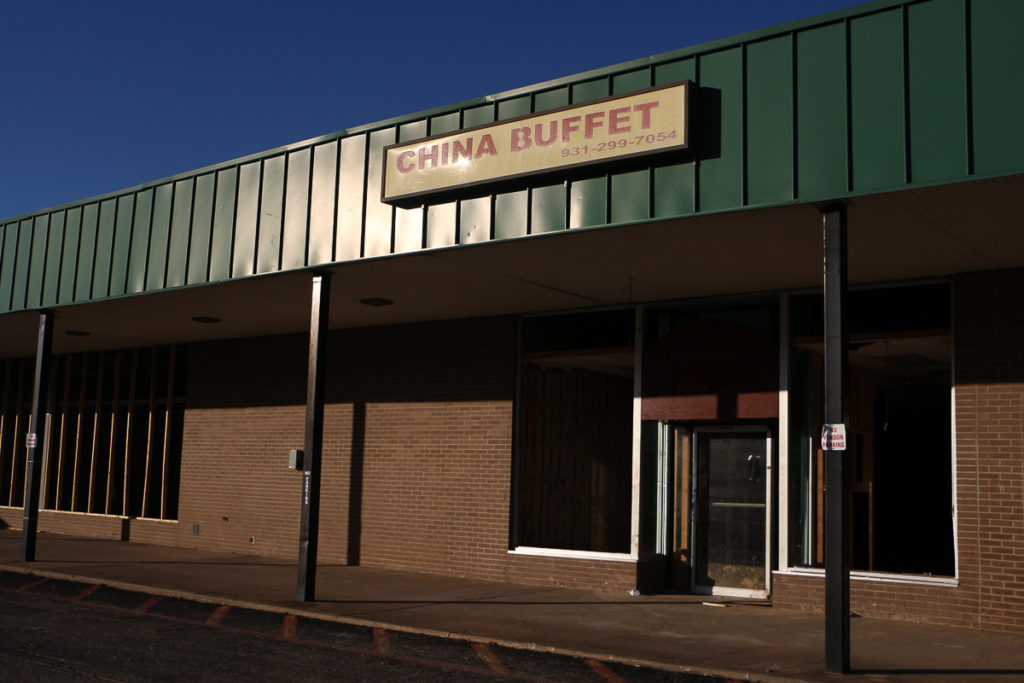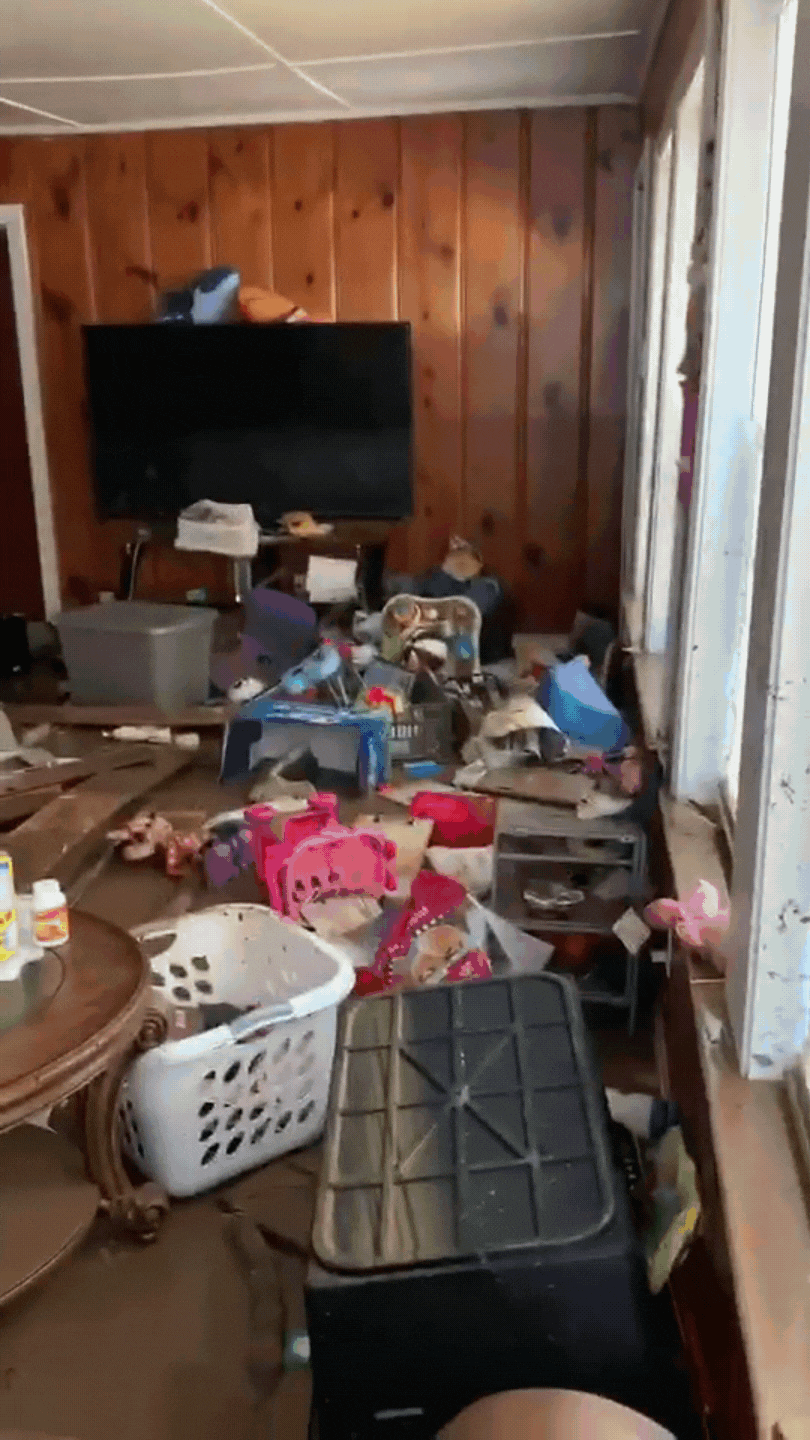
Sammy Liu thought the worst of the storm had passed.
It’s been more than four months since a deadly flood swept her town of Waverly, Tenn. The deluge plowed through scores of properties and killed 20 people. In the immediate aftermath, Liu was simply grateful to be alive.
But months later, her family is still measuring the magnitude of their loss. Heavy rain consumed everything they had ever owned and spared none of it — not their house, not their restaurant, not even their daughter’s toys. Above all, the once-in-a-millenium storm exposed just how tenuous their life in Waverly was.
“House no more, restaurant no more,” Liu says. “I don’t know what to do with no job for me.”
Hundreds of survivors like Liu have come to realize that the downpour was only the beginning of their troubles. Many lacked flood insurance. Others learned the hard way that lifelines like the Small Business Administration and the Federal Emergency Management Agency will only solve a fraction of their problems.
For Liu, an immigrant from Hong Kong, those obstacles are exacerbated by her language barrier, meager savings and limited access to resources. The flood may be long gone, but Liu and her family are still trapped in limbo — struggling to find a permanent place to live, steady jobs and a clear plan to recovery.
“I just want people to know, life in America isn’t easy,” Liu says.
‘We didn’t have much money, but we were happy’
In the fall of 2008, Liu immigrated to the United States. In one hand, she held onto her two young sons, ages 7 and 12. In the other, she lugged a single large suitcase.
She came to join her husband and relatives, who had moved to Tennessee a few years earlier to find better jobs. Liu and her husband immediately picked up work in Chinese restaurants because they didn’t need to know much English.
After four years of toiling in other people’s kitchens, Liu and her husband saved up enough money to run their own. That’s when a relative offered to sell over his restaurant in Waverly, a small town outside of Nashville. The storefront for China Buffet was at the center of the county plaza and the only Chinese takeout within a 20-mile radius.
The business was bound to be a success, she thought.
“Here in Waverly, just one Chinese restaurant,” Liu says. “I go home so happy, thinking that’s good, maybe.”
It didn’t worry Liu that very few Chinese-Americans lived in the county. She had her family, Liu says, that’s all that mattered. Despite the language barrier, she was surprised to find that people in Waverly were kind and welcoming, and that often customers took time to get to know her. In previous restaurants where she worked, people swiftly paid and left.
For the next decade, life was peaceful, Liu says. Her family celebrated every birthday and put their youngest son through college. They raised farm animals and bought their first house. Liu also had a daughter, who treated the restaurant as her second home — often finishing her homework or hosting imaginary tea parties in the dining area.
Despite the success, life in Waverly did come with challenges. Liu’s oldest son, who often helped at their restaurant, eventually moved back to Hong Kong. Liu says it was tough to find other Chinese staff who would move to the area. So, she and her husband were often the only ones working. They worked every day of the week and never took a vacation. Her husband eventually developed arthritis in his wrists and arms from the constant labor, Liu recalls.
“We didn’t have much money, but we were happy,” she says.
Then, the pandemic hit. Closing the restaurant during the state’s lockdown was costly, Liu says, but even afterwards, her restaurant struggled to ever fully recuperate.
‘The flood destroyed our life’

On the morning of Aug. 21, Liu and her family woke up to screams and car sirens — just in time to notice water slither under their front door. In a panic, Liu, her husband and their 7-year-old daughter bolted to the attic.
Liu frantically toggled between calling 911 and her son who was away at college. But she soon lost cell service. At one point, a nearby trailer sailed down their street, pounding at the side of their house. The floors began to buckle. Liu huddled in the corner, praying for the rain to stop.
Her family was trapped upstairs for three grueling hours until the floodwater receded. At its peak, the deluge submerged more than half of their first floor. All their possessions were soaked, and all their farm animals drowned, except one goose.
After safely evacuating their home, her family rushed over to their business. A vast pool of muddy water stood between the family and their restaurant. But from a distance, Liu could make out the damage.
Windows were broken. Appliances toppled over. A heaviness descended over her as she accepted the harsh reality that nothing was spared.
“The flood destroyed our life,” Liu wrote in Cantonese via text. “I feel hopeless.”
Liu says her family had poured nearly $300,000 into maintaining their house and restaurant. In a matter of hours, that investment and their two cars were washed way.
But in the midst of grief was overwhelming kindness, Liu recalls. She had never felt as close to the town as she did after the flood. Strangers, customers and their daughter’s school teacher came to offer solace, clothes and logistical help. It made leaving Waverly all the more heart-wrenching.
‘Don’t cry, no looking before’
The original plan was to go back to Waverly, but their optimism was quickly dashed. SBA denied their disaster loan application. FEMA gave them more than $20,000 dollars, but Liu says it’s not nearly enough to repair their home.
For the time being, it’s the least of their worries. Since the flood, her family has been separated, shuffling through four different states. Right now, Liu and her son are living in New York, while her husband and daughter are in New Hampshire. Her other son is overseas. Reuniting is Liu’s top priority.
The loss still haunts her, but taking time off work has helped soften the blow. To pass the time, Liu goes shopping, mainly for her daughter. On FaceTime with one another, Liu shows off the purchases — a pair of white leggings, a green sweater.
“Look what I got you!” Liu says in excitement, eager to see her daughter try them on one day.
She tries to stay positive, to not dwell on the past. She quotes her son: “Don’t cry, no looking before, look ahead.”
The future overwhelms her, but it’s a familiar anxiety, building a life in America.
They’ve done it before, Liu says. They’ll do it again.


